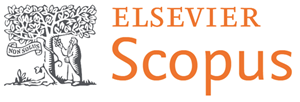Conflict of Interest
Built Environment Journal (BEJ) adheres to the highest ethical standards in academic publishing and follows the guidelines of the Committee on Publication Ethics (COPE) regarding conflicts of interest (COI). All parties involved in the publishing process—authors, editors, reviewers, and editorial board members—must disclose any financial, personal, or professional relationships that could influence the objectivity or integrity of a manuscript’s evaluation and publication.
1. Authors
Authors must disclose:
-
Any financial relationships (such as funding, employment, stock ownership, paid expert testimony, patent applications, or grants) that might be perceived to influence the results or interpretation of their work.
-
Non-financial conflicts such as personal relationships, academic competition, or strong intellectual beliefs that could affect their objectivity.
-
All sources of financial support for the project, including the role of the funder in the design, execution, analysis, or reporting of the study.
Disclosure must be made at the time of manuscript submission under the "Conflicts of Interest" section.
2. Editors
Editors must:
-
Recuse themselves from handling a manuscript where they have a conflict of interest with any of the authors, institutions, or funding agencies.
-
Avoid making editorial decisions influenced by personal or financial gain.
-
Ensure that peer review is conducted objectively and fairly, without bias.
All potential conflicts must be disclosed to the publisher and managed appropriately.
3. Reviewers
Reviewers must:
-
Declare any conflicts of interest that could affect their impartiality.
-
Decline to review manuscripts where a conflict exists.
-
Treat manuscripts as confidential and must not use unpublished materials for personal advantage.
If a potential conflict is discovered during the review process, the reviewer must inform the editor immediately.
4. Editorial Board Members
Editorial Board Members must:
-
Disclose any conflicts that may compromise their ability to act impartially.
-
Abstain from participating in decisions involving manuscripts where they have a conflict of interest.
5. Handling Undisclosed Conflicts
If an undisclosed conflict of interest is identified after publication, BEJ will investigate the matter in accordance with COPE procedures. Based on the findings, the journal may issue a correction, an expression of concern, or a retraction, depending on the severity of the infraction.











